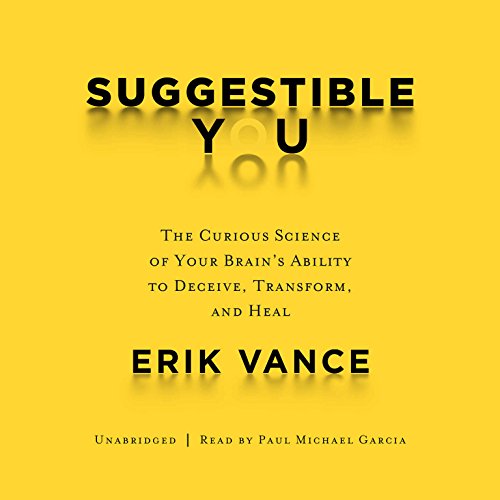
This riveting narrative explores the world of placebos, hypnosis, false memories, and neurology to reveal the groundbreaking science of our suggestible minds. Could the secrets to personal health lie within our own brains? Journalist Erik Vance explores the surprising ways our expectations and beliefs influence our bodily responses to pain, disease, and everyday events. Drawing on centuries of research and interviews with leading experts in the field, Vance takes us on a fascinating adventure from Harvard’s research labs to a witch doctor’s office in Catemaco, Mexico, to an alternative medicine school near Beijing (often called “China’s Hogwarts”). Vance’s firsthand dispatches will change the way you think–and feel.Continuing the success of National Geographic’s brain books and rounding out our pop science category, this book shows how expectations, beliefs, and self-deception can actively change our bodies and minds. Vance builds a case for our “internal pharmacy”–the very real chemical reactions our brains produce when we think we are experiencing pain or healing, actual or perceived. Supporting this idea is centuries of placebo research in a range of forms, from sugar pills to shock waves; studies of alternative medicine techniques heralded and condemned in different parts of the world (think crystals and chakras); and most recently, major advances in brain mapping technology. Thanks to this technology, we’re learning how we might leverage our suggestibility (or lack thereof) for personalized medicine, and Vance brings us to the front lines of such study.

From a faith healing background as a Christian Scientist to an investigative quest of the curious power of our suggestible mind. I have to admit, I almost didn’t order this book when I saw that the author was trained at a Christian Science College, afraid that this might be a platform to espouse religious beliefs that I respect but didn’t desire to be preached to about. But he explains that his early belief system and instruction regarding the mind healing a person to the exclusion of seeking established medical practice, while now part of his past, was what moulded him into becoming a science journalist. I was first…
Take a suggestion…. This is a FABULOUS book about how suggestible we are, how the master organ, the brain, can literally command physical changes in the body. This is no lightweight “think and grow thin” book. It’s about how the brain may be working to produce the famous “placebo effect”, where a simple sugar pill can be as effective to a headache sufferer as an aspirin–as long as he believes it is strong medicine.
Good book if not a tad ironic This book is quite engaging – if not outright entertaining – making it a quick and easy read. The topic is of immense interest both to the professional and lay person but it is not without some problem. Ironically, the author seems to fall prey to exactly the type of suggestiveness outlined in the book itself; time and time again, a one-side example is provided without discussion about other alternative “reasons” for the outcome. Case in point, the book opens with the story of a young…